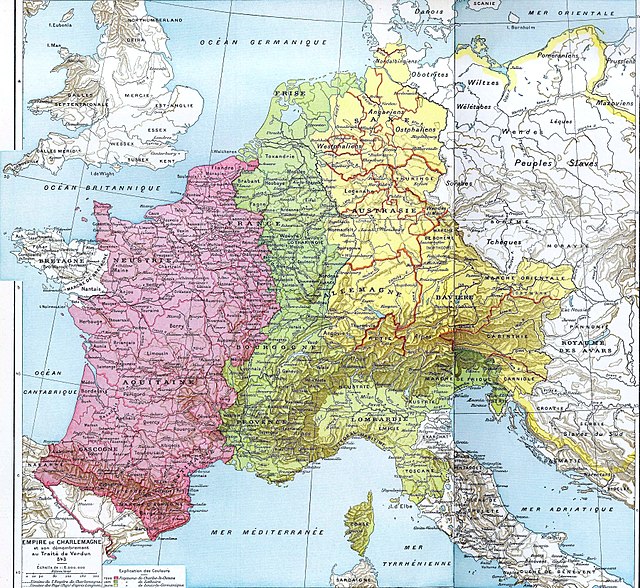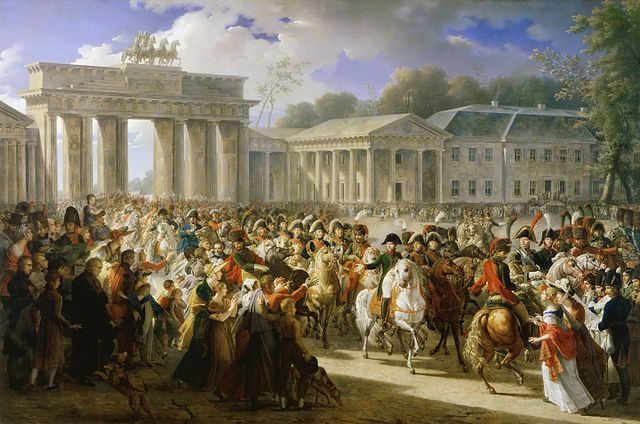Relations between France and Germany, or Franco-German relations form a part of the wider politics of Europe. The two countries have a long — and often contentious — relationship stretching back to the Middle Ages. Since 1945, they have largely reconciled, and since the signing of the Treaty of Rome in 1958, they are among the founders and leading members of the European Communities and their successor the European Union.
The Carolingian Empire, as divided in 843
The Prussian troops victorious at the battle of Rossbach. Johann Christoph Frisch, 1799.
Entry of Napoleon into Berlin by Charles Meynier, 1810. French troops entering Berlin after the Battle of Jena.
Proclamation of the German Empire at the Palace of Versailles, 18 January 1871, by Anton von Werner
Charles André Joseph Marie de Gaulle was a French army officer and statesman who led the Free French Forces against Nazi Germany in World War II and chaired the Provisional Government of the French Republic from 1944 to 1946 to restore democracy in France. In 1958, amid the Algerian War, he came out of retirement when appointed Prime Minister by President René Coty. He rewrote the Constitution of France and founded the Fifth Republic after approval by referendum. He was elected President of France later that year, a position he held until his resignation in 1969.
Wartime portrait, 1942
De Gaulle's parents: Jeanne Maillot and Henri de Gaulle
De Gaulle's birth house in Lille, now a national museum
De Gaulle in 1897, aged 7








